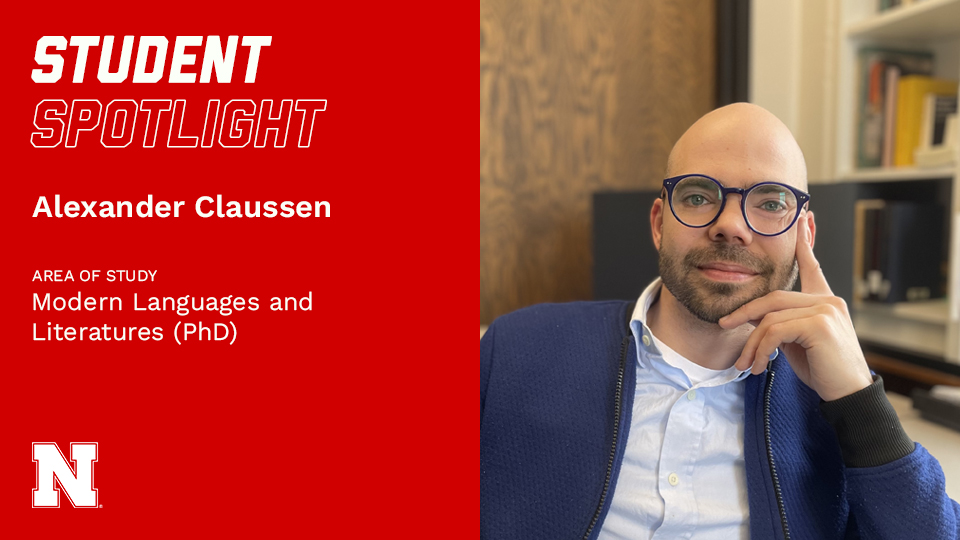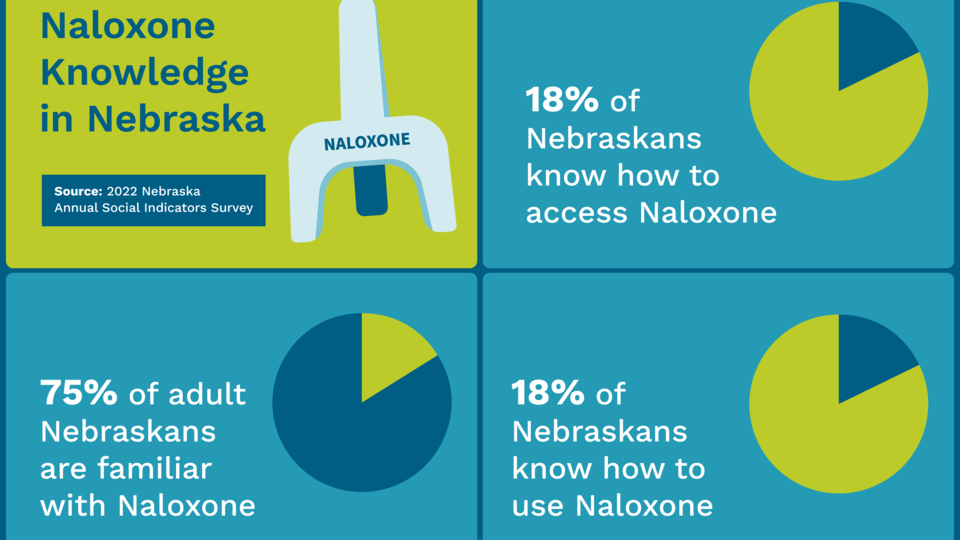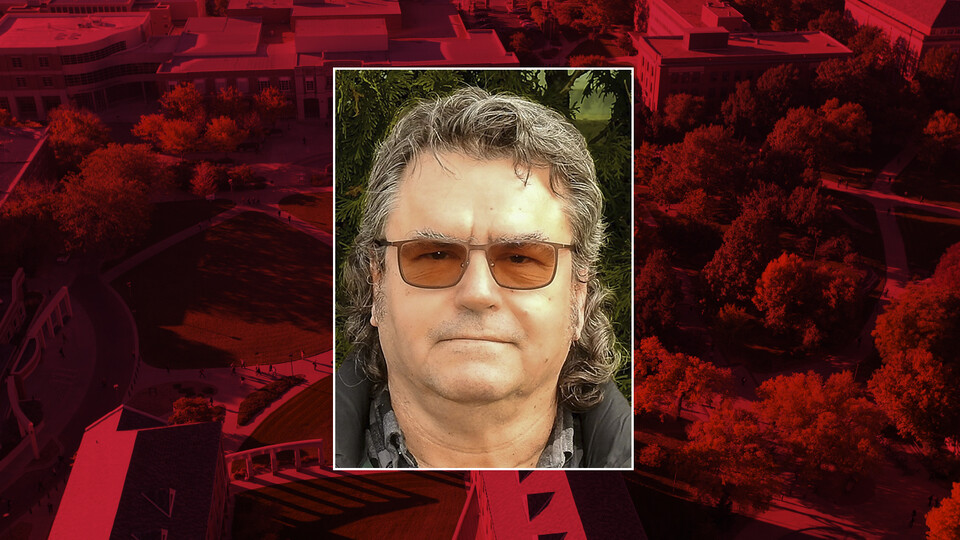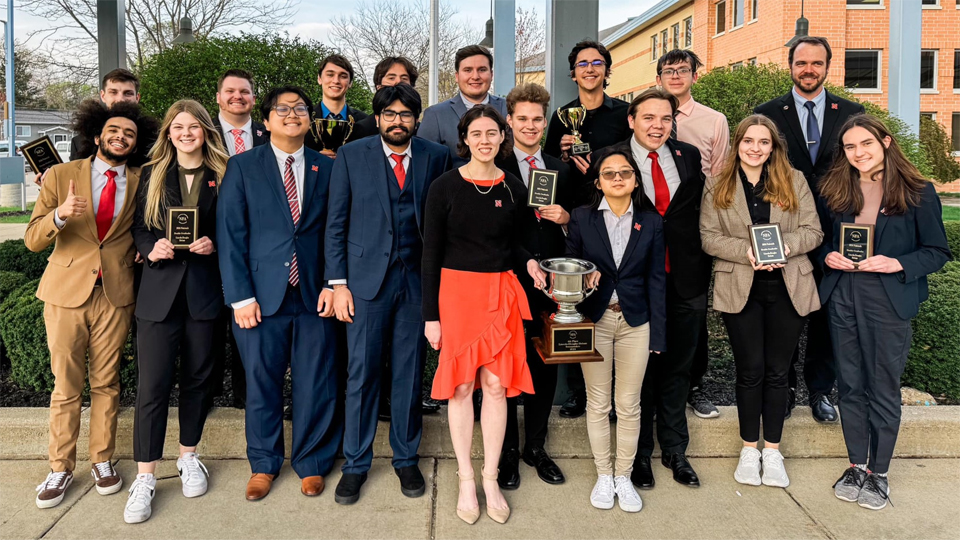
Academic program: Modern Languages and Literatures
Masters or PhD program: PhD
Degrees you currently have: BA in German, Globabl Studies, and History (UNL); MA in Modernal Languages and Literatures (UNL)
Hometown: Omaha, NE
Preferred pronouns: he/him
Why did you select your program?
I chose to study literature because I find it endlessly fascinating. It provides access to perspectives far removed from our own and forces us to reckon with the inherent strangeness of our world in ways that are sometimes mystifying, sometimes terrifying, sometimes funny, sometimes incredibly sad. Reading in more than one language multiplies the number of voices accessible to us and continually challenges—linguistically as well as culturally—our own perspective on the world around us. (And, of course, it’s hard to imagine a situation that couldn’t be improved by adding a book.) I chose to study literature at UNL because of the faculty. The professors in Modern Languages and Literatures are world-class, internationally recognized for their scholarship; I was particularly excited to work with Jordan Stump on literary translation and Nora Peterson on early modern writers. But from the beginning, I’ve also been struck by the French program’s energy: students and faculty constantly interact in classrooms, offices, hallways, and, really, anywhere our paths happen to cross. It’s an incredibly supportive environment, and it’s been a joy to come to the office every day and be able to work with scholars who are outstanding as both researchers and teachers. The seriousness with which everyone in the program takes mentorship is one of its great strengths, and I’ve been able to benefit from many, many opportunities for academic growth, from attending national conferences to piloting new courses and everything in between.
What has been your best experience as a graduate student at Nebraska?
I wish I could say “every day I get to introduce people to the joys of French grammar,” because I think it’s accurate. But my favorite discrete experiences have been collaborations with programs across the university. I worked with Patrice McMahon, Nora Peterson, and Jacob Schlange to develop and co-teach an experiential, highly interdisciplinary Honors course on contemporary migration (“Becoming American: How Identities are Created and Re-Created”). I worked with Clark Potter to develop a new teaching edition of the Bach cello suites adapted for violists. And I worked with Kelly Stage on a version of a medieval French farce (“Master Pathelin”) that could be—and was—performed as a pop-up play through the Medieval and Renaissance Studies Program. Each of these experiences allowed me to bring together diverse interests in interesting ways; and each of them allowed me to share the fascinating intersections of languages and cultures with students and colleagues across campus and in the wider community.
Who have been some of your strongest mentors or role models here?
I've already mentioned Nora Peterson and Jordan Stump, who exemplify all that is good about the profession: they are dedicated, thoughtful, brilliant, and kind. To this list should be added Julia Frengs and Erica Schauer, who have shown me so much about how to approach a text (and how to look past it); Ted Dawson, whose enthusiasm for teaching literature is infectious; and Catherine Johnson, who taught me to teach. To them, as well as all the countless professors and colleagues who have shaped my experiences at UNL, I owe a great debt of gratitude.
Do you have research experience? If so, please describe.
I’ve had some amazing opportunities during my PhD program to engage in research, beginning with the invitation to participate in the 2021 Mellon Summer Institute in French Paleography at the Newberry Library in Chicago. The program provided me with tools for analyzing handwritten documents from the medieval period to the present, tools that I have used in my research on the early modern period and, closer to home, in some of the translation work I have done with the Nebraska Translator and Interpreter Corps. I was able to return to the Newberry Library in 2022; the research I conducted in their French collections resulted in two conference papers and part of a forthcoming article in Marvels & Tales on moving images in early modern fairy tales.
That same year, I received a Ludwick travel grant from my department to conduct research in the national libraries of France and Belgium. The research I conducted in Belgium developed into a forthcoming article in The French Review on the Symbolist author Georges Rodenbach; the research I conducted in France formed the basis of my dissertation project, which focuses on intersections of music and literature in the contemporary French-language novel. I’ve been able to spend the last year focused on revising article manuscripts for publication and on finishing my dissertation thanks to a Fling Fellowship from the Graduate College; the fellowship has also supported travel to regional and national conferences this spring to share the results of my work and to receive feedback from scholars across the field.
What are your plans once you have earned the degree?
More school! Though in a different mode: in the fall, I'll be joining the faculty of the University of West Georgia as an Assistant Professor in the Department of English, Film, Languages, & Performing Arts.


